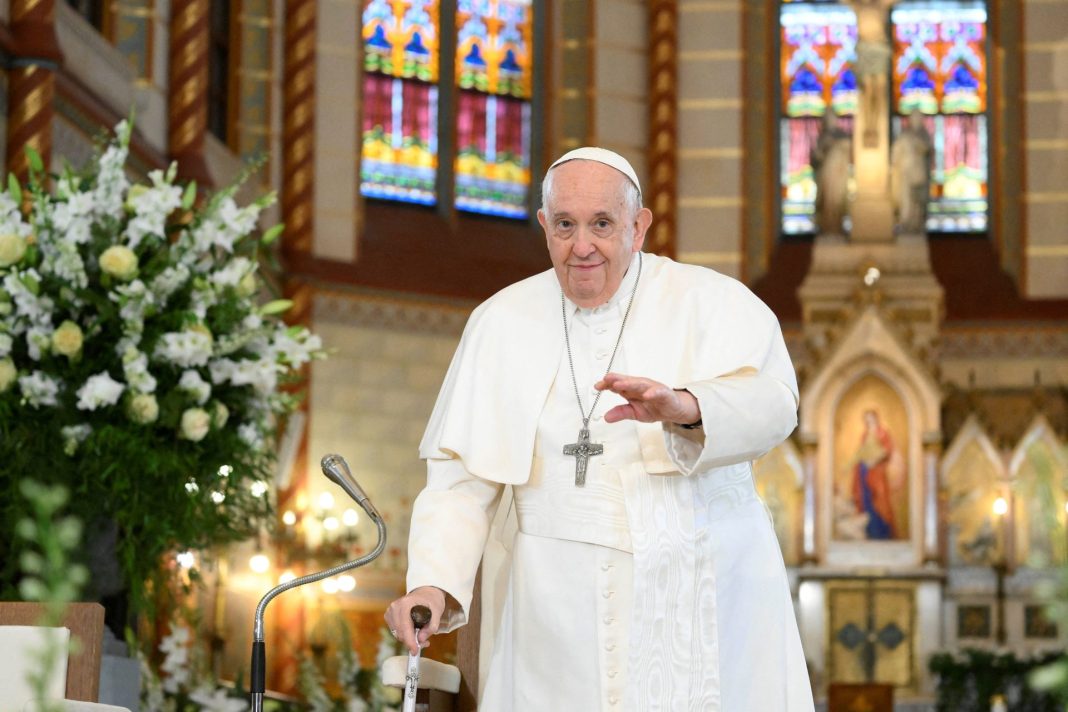Speaking with Reuters, Stoltenberg rejected the idea, saying more military support for Ukraine is the way to achieve a negotiated peaceful solution.
The secretary-general added that “what happens around a negotiating table is inextricably linked to the strength on the battlefield”.
“It’s not the time to talk about surrender by the Ukrainians. That will be a tragedy for the Ukrainians. It will also be dangerous for all of us,” he claimed.
Kiev also rejected Pope Francis’ remarks. In a statement on Sunday, which did not directly refer to the pontiff’s interview but came out shortly after the transcript was released, President Voldoymyr Zelensky said that religious figures trying to help Ukraine should not be “virtually mediating between someone who wants to live and someone who wants to destroy you”.
Foreign Minister Dmitry Kuleba later insisted that Ukraine “shall never raise any other flags” than its national flag.
On Monday, Kiev summoned the papal ambassador to Ukraine, Archbishop Visvaldas Kulbokas, to discuss the Pope’s comments. Kiev expressed its disappointment with the remarks, which are “legalizing the right of the strongest” and “encouraging [Russia] to neglect the norms of the international law,” the Ukrainian Foreign Ministry said in a statement.
Kiev insists that a peaceful settlement to the conflict with Moscow can only be achieved on its terms, including the non-negotiable return of all former Ukrainian territories, the withdrawal of all Russian troops, and an international tribunal for Russia’s leadership. Zelensky also recently said that Russia will not be invited to peace talks which are expected to be held by its Western backers in the near future.
Russia called the idea of negotiations without its own participation “laughable”. Moscow welcomed Pope Francis’ appeal for peace talks. Kremlin spokesman Dmitry Peskov said on Monday that the Pope’s ideas echo those expressed by Russia, which considers negotiations “the preferred way” of ending the conflict.
Also on Monday, CIA Director William Burns said the US is standing at “a profoundly important crossroads” in terms of whether to continue funding Ukraine’s war effort against Russia.
With a White House request to appropriate over $60 billion in additional aid for Kiev stalling in the US House, events can go down two paths, the intelligence chief told the Senate Select Committee on Intelligence on Monday.
In one scenario, lawmakers could release the money and allow for the “real possibility of cementing a strategic success for Ukraine and a strategic loss for” Russia, he claimed, citing a CIA assessment.
“With supplemental assistance, Ukraine can hold its own on the front lines through 2024,” Burns added. The money would allow Kiev to conduct more “deep penetration strikes in Crimea”, and continue targeting the Russian Black Sea fleet. In early 2025, it “could regain the offensive initiative” and start regaining ground.
The other scenario leads to a “much grimmer future,” Burns warned, with Ukraine losing more battles like the one for the town of Avdeevka in Donbass. The heavily fortified position within striking range of Donetsk had been held by Kiev’s troops since 2014, but Russia liberated it in mid-February. The CIA chief said he was told during his visit to Kiev earlier this year that the Ukrainians “ran out of ammunition” and were forced to retreat.
Without aid, Ukraine is facing “more Avdeevkas” in 2024, resulting in a “probably significant” loss of territory, he continued. Burns added: “That, it seems to me, would be a massive and historic mistake for the United States.”
He claimed that Russia’s goal was to “subjugate” Ukraine, while the US wanted it to be a “strong sovereign independent country” anchored in Western institutions.
